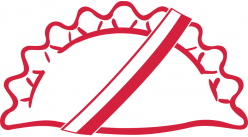Meaning:
Lit. “to walk on walls”. This expression is used in various contexts and situations to convey lots of meanings. In the past, it seems to me, it’s been mainly used to describe a person that is in stressed out, cannot control her- or himself. Or people doing their very best to achieve something considered unrealistic. I’ve also seen instances of “chodzić po ścianach” referring to someone being extremely bored.
The meaning I’m mostly used to and it seems, a more popular nowadays, is this referring to people being completely drunk or intoxicated with some other drugs, especially if this state is reached at a house party be a couple persons in unison. The spirits (we’re not talking about a beer or two here) lift their spirits so high, that they gain superhuman powers, even if cannot remember it the day after. By the way, if you want to learn about fifty, often poetic, ways to say “drunk” in Polish, head to this page. It has them all.
Continue reading Chodzić po ścianach
